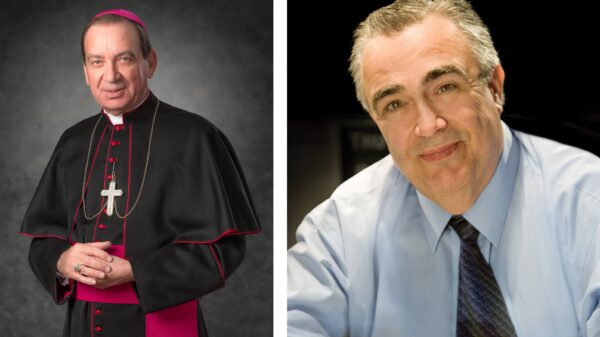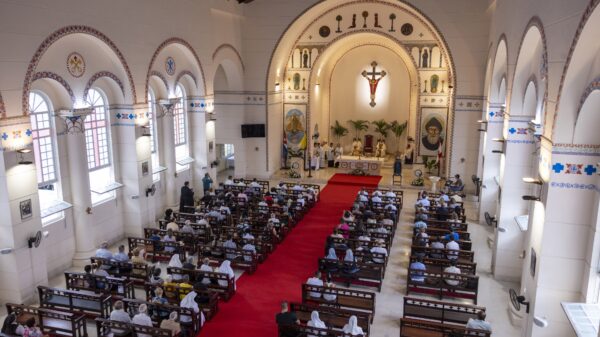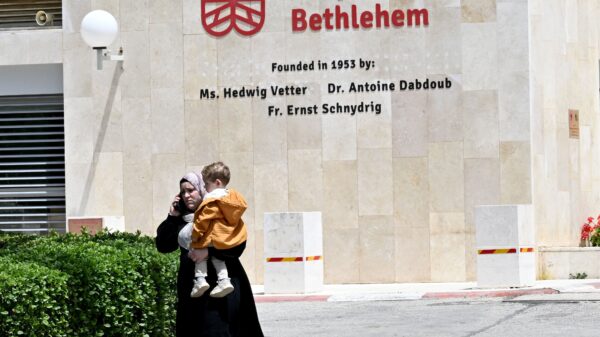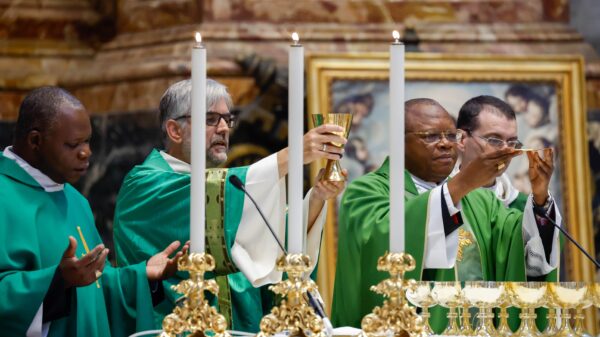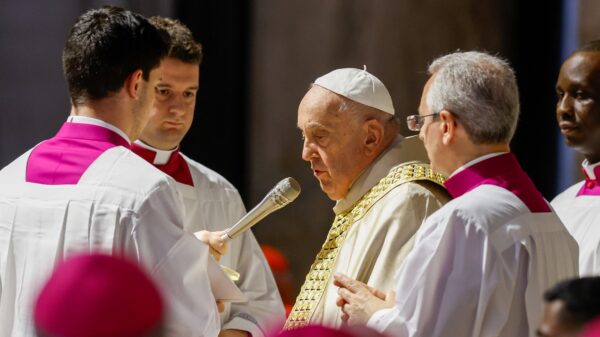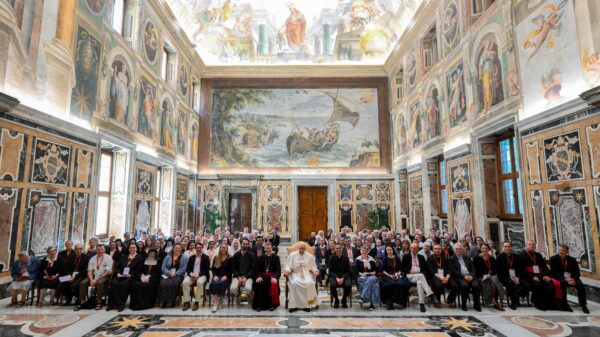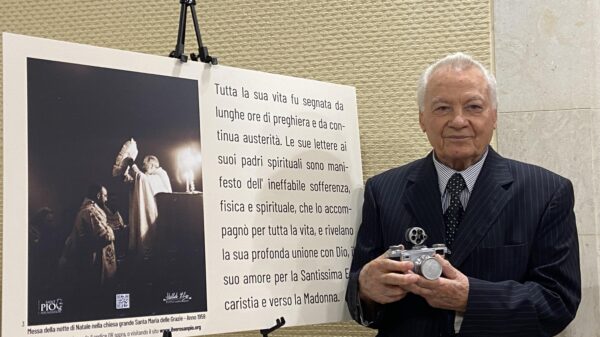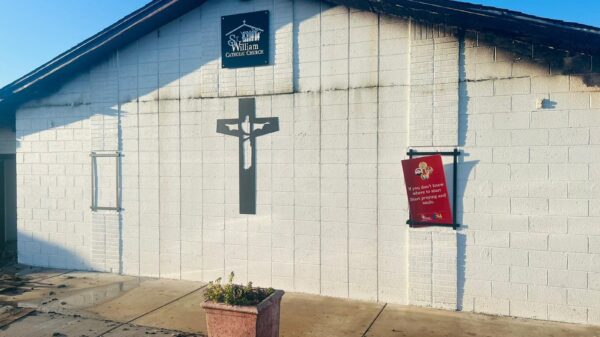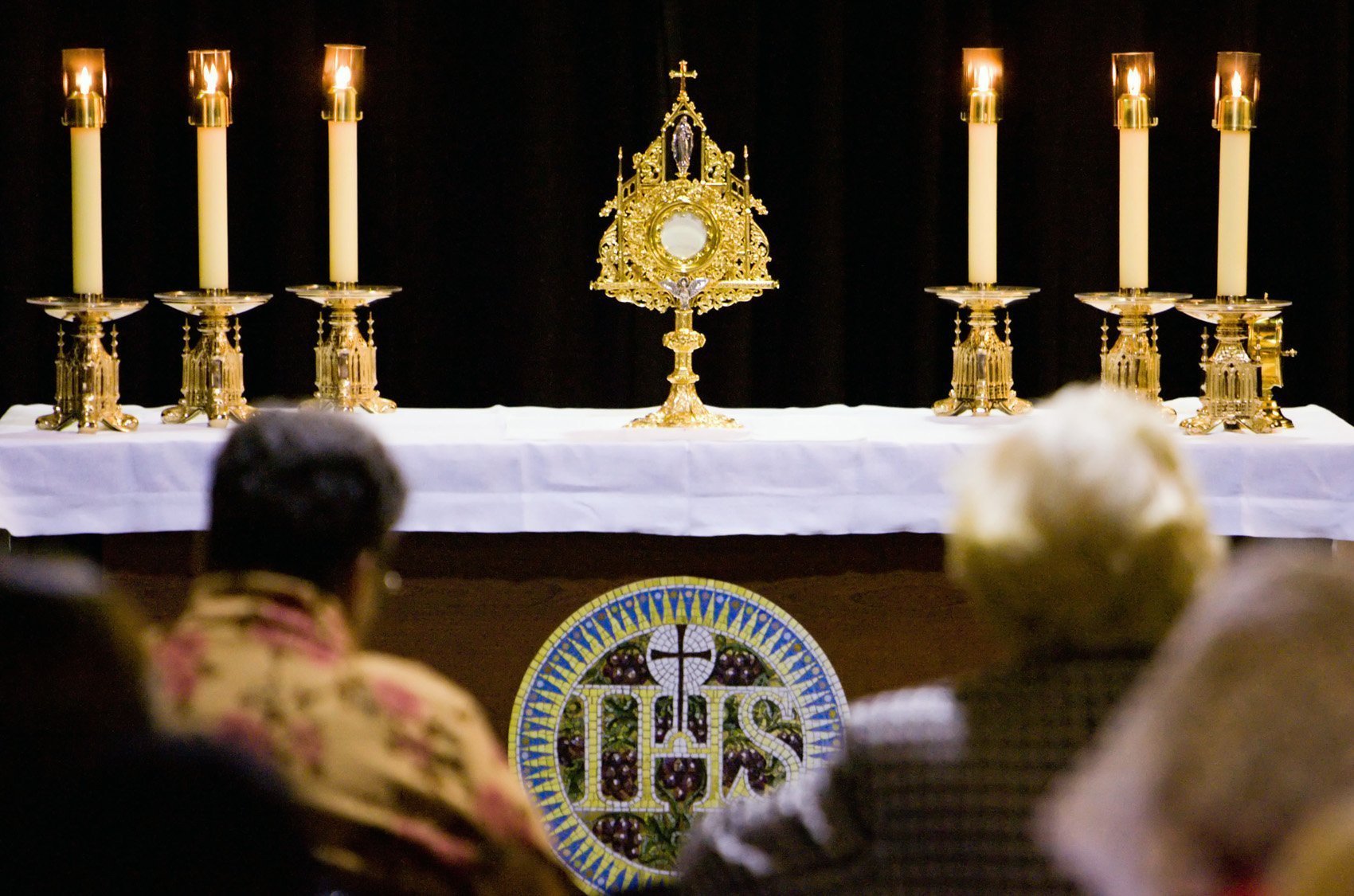By Kimberly Baker
As I reflect on how the church serves the world (by helping the homeless, providing education in schools, serving the poor, providing health care), I am struck by the powerful connection between service and prayer.
No matter the type of service to which we are called, our effectiveness is only enhanced when we cultivate a deep love for Jesus in the Eucharist, where our Christian witness becomes nourished and thus is made more powerfully able to affirm the dignity and worth of each person we encounter.
This is emphasized in a unique way throughout October, when the Catholic Church in the United States observes Respect Life Month — a focused time in which we reflect more deeply on the value and gift of human life and discern how we are individually being called to help build a culture of life.
Each of us is made in the image and likeness of God, which means we possess incredible dignity and worth and are loved uniquely from all eternity. When we experience how deeply we are loved by God, we are moved to reach out to others in love, and to affirm their dignity as well.
Uniting with Jesus in the Eucharist and spending time with him in prayer is a literal nourishment for the soul, strengthening us in our faith and reaffirming how deeply we are loved. This encounter elicits our loving response in return, and we go out meant to be witnesses of his love to the whole world.
Our faith is not meant to be isolating or stagnant, but something that is fruitful and built in communion with others.
So, how does this relate to building up a culture of life?
Efforts to promote respect for life must firstly encompass all stages of life, from the preborn to the terminally ill and the elderly. It includes the poor, the sick, the homeless, persons with disabilities, those suffering from mental health challenges, and those who are victims of violence and unjust discrimination. It includes families who are living on an economic edge, and struggle with openness to life. It includes women facing challenging and difficult pregnancies, who may feel completely alone and unsupported.
In every human face, we are called to see and love Jesus in each person, affirming their worth and dignity, being a loving and life-giving presence to each human being.
This is the essence of building up a culture of life.
During Respect Life Month, let us be encouraged to work to advance greater respect for the sacredness of all human life, from conception to natural death. This year’s theme focuses on “radical solidarity,” which emphasizes putting our faith into action as we seek concrete ways to support women, children and families to make life-affirming choices.
We can only move forward in living our faith in action when we have a strong foundation in the Eucharistic Christ. Fostering this connection, especially through frequent participation in the Mass and opportunities for adoration, we can allow Jesus to work through us in ways we could never have imagined.
In the most common everyday interactions, we can bring joy and light to others — lifting up a family member, friend or co-worker who may be feeling down. Or through small acts of kindness, or in donating to local Church efforts to help women and families in need. Or even volunteering at local parishes or other Church groups dedicated to helping those in need.
When service is grounded in prayer, we become powerful witnesses of God’s love to others in both ordinary and extraordinary ways.
Always remember that the time spent with Jesus in the Eucharist will reinforce how deeply you are loved and is also an invitation to love others in turn. Each time you reflect the love of Jesus to others, each action you take to affirm the dignity of another, each time you give someone hope that their life has meaning and worth, you are helping to build a culture of life.
– – –
Kimberly Baker is programs and projects coordinator for the Secretariat of Pro-Life Activities, U.S. Conference of Catholic Bishops. She is also a member of the executive team for the National Eucharistic Revival, serving in a consultative role for both the Congress and Revival.



